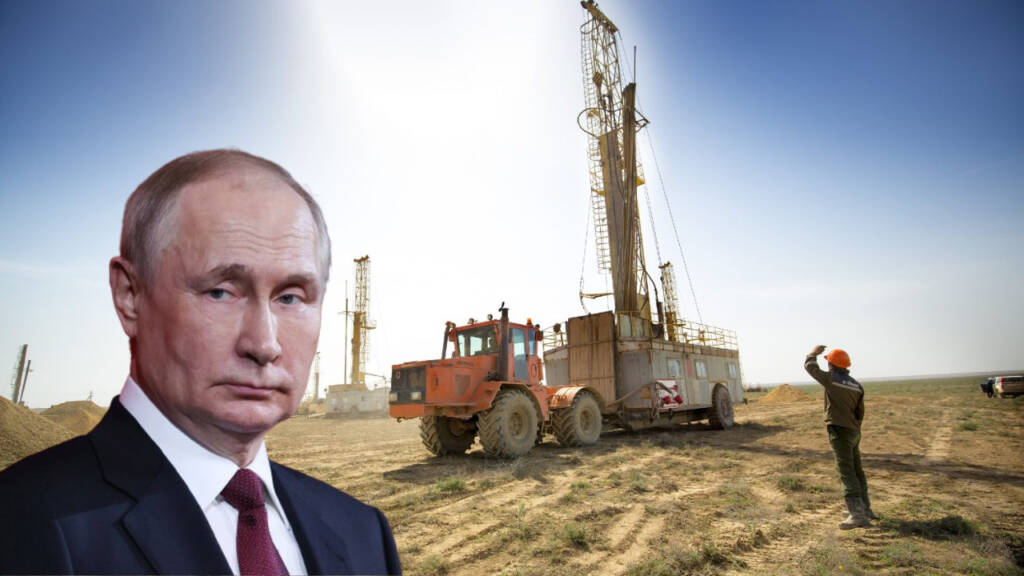Well, well, looks like Russia’s not just conquering territories in the war, but also nabbing the crown for being the Lithium Powerhouse! Amidst all the Ukraine-Russia commotion, here’s the kicker: while the West geared up to shun everything Russian, they might have missed a tiny detail. Brace yourselves, green energy enthusiasts! Despite the attempts to cut ties, it seems the grip on Lithium, crucial for those EV vehicles everyone’s raving about, isn’t slipping away that easily. Surprise, surprise!
GlobalData, via its parent company Energy Monitor, recently unveiled a report revealing Europe’s largest lithium reserves situated in Russia’s Donbass region. Specifically, the former Ukrainian Shevchenkivske field in Donetsk and the Kruta Balka block in Zaporizhzhia are now under Russian control.
This significant addition to Russia’s already substantial lithium deposits, now totaling 1.5 million metric tons, firmly secures its position in the global top ten.
The implications for the EU, particularly Germany, are crucial as they heavily rely on this rare mineral for manufacturing green energy technologies like wind turbines, electric vehicles, and various electronic devices.
Read More: Russia’s Lithium Jackpot is set to shake up the EV World
The overview of the Critical Minerals Thematic Intelligence Report highlights the significance of critical minerals in the shift toward a low-carbon world. With more than 70 countries committing to net-zero goals and reducing emissions, the demand for minerals essential for green technologies like electric vehicles and solar panels is surging. This heightened global focus on creating a greener future is putting considerable pressure on natural resources, particularly the minerals vital for energy transition technologies.
Join us on Telegram: https://t.me/tfiglobal
The report goes on to detail how a small number of areas control the majority of these rare minerals and how issues with the supply chain impact their distribution and recovery. To put it succinctly, the energy transformation that EU President Ursula von der Leyen always brags about would either be postponed or rendered impossible due to demand shortages if Europe fails to acquire enough lithium.
The majority of lithium reserves are held by the United States, Australia, and a few Latin American nations; however, access to these supplies for the EU will be costly. Furthermore, the majority of reserves held by the United States and these growing nations will undoubtedly be used for domestic purposes.
Unfortunately now Europe finds itself with a solitary recourse, and that path inevitably leads to Russia.
German CDU MP Roderich Kiesewetter openly acknowledged the significance of the Russia-Ukraine conflict, pointing to the coveted 500,000 tons of Lithium reserves in the Donbass region. He emphasized the European Union’s support for Ukraine due to these mineral deposits. Kiesewetter highlighted the implications of Donbass being under Russian control, indicating Berlin’s reliance on Moscow. Additionally, he proposed Germany’s provision of highly accurate Taurus cruise missiles with a 500km range to Zelensky’s regime. These missiles are potent bunker-buster weapons, contrasting the usefulness compared to outdated Leopard tanks. This stance suggests a forceful intent by Germany and the EU to access Ukraine’s abundant resources. The failed Ukraine offensive leaves limited options, hinting at a strategic shift toward acquiring resources through different means.
Read More: 94% citizens of Donbas, Zaporizhzhia and Kherson vote to stay with Russia, Putin begins paperwork
The EU’s recent move to sanction Russia’s luxury diamond exports might seem distant from the daily lives of average citizens, but it directly impacts the upper-middle class and wealthy within the bloc. This decision, coupled with other geopolitical tensions like potential gas pipeline disruptions and grain shortages, strains an already fragile union of member states. Considering the EU’s reliance on industries like car manufacturing and refined petroleum exports, envision the ramifications of a future shift to electric vehicles—Lithium becomes crucial. Dependency on distant sources for this strategic mineral, especially in a hypothetical WWIII scenario, could escalate into what might be dubbed “The Great Lithium War.”
Clearly, Russia’s victory in the conflict not only secures territories but unexpectedly elevates it to a Lithium Powerhouse. While Europe stood against Russia, it now faces a stark reality—reliance on Russian-held Lithium reserves. The irony? Amidst sanctions, the very mineral essential for green technology might flow from the nation they opposed.
Watch More:
